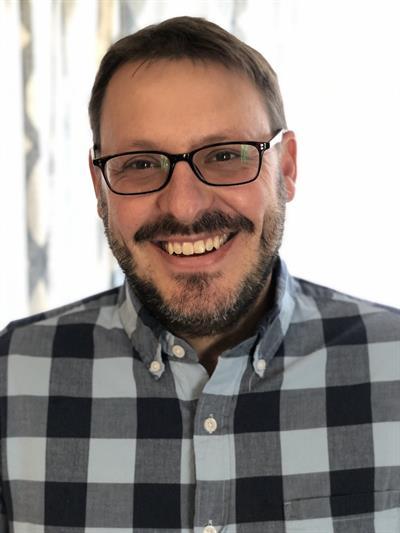
Brian Gravel

Research/Areas of Interest
Brian's research focuses on students' representational practices in science and engineering studied using design-based research on learning technologies and socio-technical learning environments. This work builds from the development of SAM Animation, which is stop-motion animation software developed at the Center for Engineering Education and Outreach. Brian co-developed SiMSAM: a multi-representational toolkit to support creative computational modeling activities for middle grades learners.
Curious about design, play, and making, his work involves partnerships with researchers and educators to explore dimensions of STEM learning at the intersections of people, materials, representations, and cultures. One such example is starting Nedlam's Workshop in 2014, a makerspace in an urban high school that emphasizes multidisciplinary inquiry. Through this work, he developed both empirical and theoretical contributions focused on heterogeneous design, STEM literacies in making, and analyses of how communities of makers organize to support each other's practices. Collectively, his research complicates and expands the field's understandings of how inquiry unfolds in making contexts, and how makerspaces can be a site for equitable and dignified participation in STEM. Brian's newer work involves teachers engaging in playful computational making to study how they (re)negotiate relationships to inquiry, disciplines, computational tools, and heterogeneous ways of knowing. This includes the exploration of geographies of care and responsibility that support STEM learning environments that center wellbeing. His scholarship examines the many facets of making and making spaces in schools, both in the United States and abroad. Brian's collaborative research has been funded by the National Science Foundation, the LEGO Foundation, and the Spencer Foundation.
Selected Publications
Gravel, B. E., & Puckett, C. (2023). What shapes implementation of a school-based makerspace? Teachers as multilevel actors in STEM reforms. International Journal of STEM Education. https://doi.org/10.1186/s40594-023-00395-x
Gravel, B. E., & Svihla, V. (2021). Fostering heterogeneous engineering through whole-class design work. Journal of the Learning Sciences, 30(2), 279–329. https://doi.org/10.1080/10508406.2020.1843465
Gravel, B. E., Tucker-Raymond, E., Wagh, A., Klimczak, S., & Wilson, N. (2021). More than mechanisms: Shifting ideologies for asset-based learning in engineering education. Journal of Pre-College Engineering Education Research 11(1), 276–297. https://doi.org/10.7771/2157-9288.1286
Tucker-Raymond, E., & Gravel, B. E. (2019). STEM literacies in makerspaces: Implications for learning, teaching, and research. Routledge.
Education
- PhD, Science Education, Tufts University, Medford, United States, 2011
- MS, Mechanical Engineering, Tufts University, Medford, United States, 2004
- BS, Mechanical Engineering, Tufts University, Medford, United States, 2001